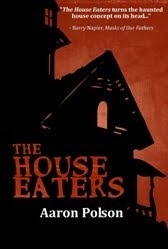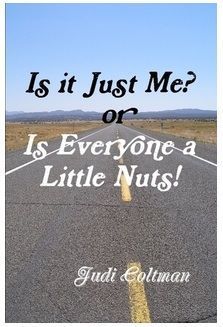Aaron Polson's Blog, page 25
June 13, 2011
On Negativity, Destruction, and Rebuilding
The nastier you are, the more venomous opinion you espouse, the better your numbers will be. I hate to admit it, but after nearly five years of blogging about writing (and life), my most-read posts are those in which I threw a mini-hissy fit. Evidently, negative vibes attract blog readers.
And it's soooooo easy to be negative. The first thoughts in many tough circumstances are often negative. Ever heard the advice to wait a day before mailing a letter written in anger? Great advice.
Here's what I've learned about life from my home improvement project: destruction takes far less time than rebuilding. I demolished 2 1/2 bathrooms in 3 days. We are in week two of the rebuild, and just passing the midway point on 1 1/2 of those bathrooms. Sloooow going.
Here's the other thing I've learned: destruction is much harder on my body than rebuilding. I haven't sprained anything/shed large amounts of blood since the end of the demolition.
Is there a parallel to blogging? You bet. Negative vibes, attacks, and rants will garner attention quickly, but they come with a price. Sometimes, a writer just has to rant. I do from time to time and I try to be honest. But, if it's all I did, it wouldn't be right. Nobody wants to linger in negative land for too long--unless we're all drinking the same Kool-Aid.
Have a great week.
June 12, 2011
#samplesunday The House Eaters Chapter 2
 (for chapter one, check here)
(for chapter one, check here)I slowed a bit, not so sure if I wanted the wax relic to notice me. Something wasn't right. His hair was weird, wispy and thin like stretched bits of cotton, and he hunched over, sort of like his spine was cracked in two and he learned to walk without it.
Maybe the House seeped into my brain a little too much. Maybe I was already missing my friends. The Hollow was cell phone black hole for sure; I lost service as soon as Dad steered around the final curve in our approach to town. The clouds didn't help—not the best omen on moving day, especially in the usually dry midsummer heat.
"Nick," Mom said, smiling her best, though exhausted. "This is Mr. Sanderson, one of our new neighbors."
The relic poked his hand at me, and I mean relic. I thought at first he lost his hand in the war, whatever war he was young enough to fight. Then I noticed fingers unfold from the splotchy thing he offered me. When I touched it, though, my heart eased into a cruising speed. Not the clammy paw I expected.
"Nick," I said.
"Hello, Nicholas. I'm Jeb Sanderson. I had a son like you, once." His voice eked out, small and quiet. I almost had to ask him to repeat himself. Then his grip tightened on my hand, and he leaned closer, looking me over with his eyes, two wet marbles with too much white. He smelled a little like black licorice. "Welcome to the Hollow… or Evergreen Estates, as it stands now."
Jeb Sanderson was the first person to call the place "the Hollow," and, for me at least, the name stuck. He looked hollow, especially his eyes—like something was missing.
"Jeb was telling us a bit about the new development," Mom said. "Says one other couple has moved in."
"Great." I slowly retrieved my hand from Sanderson's grip. "I'm going to head in, see about sorting my clothes or something."
"Nice to meet you, Nicholas."
I nodded quickly, trying to smile at least a little, then brushed past Mom on the way inside. Sanderson watched me the whole time, burning me with those wet marble eyes.
~
My sister, Tabby—although she insisted on being called Tabitha as soon as she turned thirteen—was in her room going obsessive-compulsive on her closet. She pushed her face into the hallway as I walked by.
"Did you see the old guy?" She smashed her eyebrows down with disgust. Tabby and I could be twins, except for the gender difference and three years separation and all. Sure, she was a little on the short side, and I topped out just over six feet, but we both had naturally curly hair—dark brown—and pale blue eyes set in slender faces. Naturally curly hair was "darling" on a girl but a major pain for me, thus I kept mine cropped low. Our bodies were thin, like Dad's. Thin and pale with too many freckles to count. Needless to say, Tabby and I spent our lives as one of two colors: Elmer's glue or Elmo. Mom wasn't a slouch, either—we inherited her baby blues. She was just shorter, stockier, and more athletic than the lot of us. She used to work as a corporate fitness trainer before the big heave-ho.
Of course, Mom and Tabby had these lips, too. On any other girl, I'd think Angelina Jolie. On my family members, I tried to envision Mick Jagger.
"Yeah. I shook his hand."
Tabby wrinkled her nose. "He creeped me out."
I smiled. "I told him you'd like to water his houseplants."
"Not funny, Nick." She glared at me. Despite the freckles and pasty skin, Tabby could glare just like Mom. "He really gave me the creeps. I got this vibe, like I could tell he wasn't telling the truth just by looking at him. A feeling I have, I guess."
"What, you're psychic now?"
"You don't have to be a jerk all the time." She slammed the door and cranked her boy-band tunes.
Once in my room, I shut my own door. After the car ride and everything, I had enough of the family. Even so, I felt kind of lonely. Tabby and I were never close, not really anyway. But she was the only person I would know in school, and that had to count for something.
Flopping onto the bed, I stared at the ceiling, trying to imagine ways in which I could survive the year. Some clouds sailed across the sky, and my room filled with morphing shadows. I wasn't used to the house, of course, but I didn't expect so much midday darkness.
In fact, everything about the place felt wrong—the House, my mood, and, of course, the freak-show neighbor, Jeb Sanderson. My brain kept replaying the image of the old guy and his talon-like hands. "I had a son like you, once." The blank look in his eyes sort of echoed the empty windows in the House.
Have a great Sunday.
June 10, 2011
Five Questions Friday: Annette Lyon
 Five Questions with Annette Lyon...
Five Questions with Annette Lyon...1. If you could write in any color ink, what would it be?
Purple. I used to mark up my college literature textbooks in purple. It's a happy color.
2. What three things are always in your refrigerator?
Butter (No margarine, thank you very much.) Phernergan Rx that's expired and really should be thrown out Apple cider vinegar
3. What is on the floor of your bedroom?
A mending pile that I'll get to "any time now" but that's been there for a year A Jane Austen quote book A big fluffy reading pillow my daughter made me for Christmas
4. Which is scarier, zombies or vampires? Why?
Zombies, because they don't just kill people--they make people turn on each other. Zombie stories aren't really about the zombies. They're about the dark side of human nature and what we'll do to each other in the face of ultimate terror.
5. What items do you always have with you?
Cell phoneWater bottle Book and/or Kindleponytail holder
Website: http://annettelyon.comBlog: http://blog.annettelyon.com Twitter: @lyonstale
Lost Without You, $2.99
At the Water's Edge, $2.99
There, Their, They're: A No-Tears Guide to Grammar from the Word Nerd: $0.99
June 9, 2011
Editing Ninja: Going Subordinate
Probably.
If they were like mine, they told you never to begin a sentence with "because". Lies and deceit, I tell you. Lies and deceit.
Remember last week's post about clauses? Today we're going to talk about dependent clauses (otherwise known as subordinate clauses). Every dependent (or subordinate clause) will start with either a subordinate conjunction or relative pronoun (I've listed common ones at the bottom of the post). Break the word subordinate down, and you'll understand why these clauses can't stand on their own. (sub=beneath, under, below and ordinate means in order, so these clauses are less than a sentence, got it?) The word dependent is fairly easy to understand, too: These clauses depend on something else to make a complete thought.
Every subordinate or dependent clause will have a subject and verb like a real, grown up sentence, but the subordinate conjunction or relative pronoun will knock it down a peg. Here's the basic formula:
subordinate conjunction + sentence = subordinate (dependent) clause
or
relative pronoun + sentence = subordinate (dependent) clause
Last week's example When Bob went to the store for a drink of water is a subordinate clause because of the word when. Without when, it's a sentence, see:
Bob went to the store for a drink of water.
Now here's how your teachers lied. If they were like most of mine, they told you never to begin a sentence with because (one of the more popular subordinate conjunctions). You are welcome to start with a subordinate conjunction (and therefore clause) as long as you attach an independent clause to make a complete sentence.
Let's work with Bob.
Bob bought a bottle of water because he was thirsty.
Here you have an independent clause (Bob bought a bottle of water) and a subordinate clause (because + he was thirsty).
English syntax allows you to rearrange these clauses when you have a subordinate and independent clause.
Because he was thirsty, Bob bought a bottle of water.
Beautiful, right? Wait. Wait. WAIT. I started a sentence with because! Ah, but I finished it with an independent clause tacked onto the subordinate clause with a comma. Yes, you can do that.
Because he was thirsty is not a complete thought. Because he was thirsty, Bob bought a bottle of water is. Your teachers (if they were like mine) wanted to avoid the messy "subordinate clause masquerading as a sentence" situation. How could you explain a mess like that to a third grader?
Here's a list of common subordinate conjunctions and relative pronouns. Should you need more help, you know where I live (on the 'net). Don't hesitate to contact me.
Subordinate Conjunctions:
after
although
as
because
before
even if
even though
if
in order that
once
provided that
rather than
since
so that
than
that
though
unless until
when
whenever
where
whereas
wherever
whether
while
why
Relative Pronouns:
that
which
whichever
who
whoever
whom
whose
whosever
whomever
(Yeah, like anybody uses "whosever" anymore...)
Next week, we get crazy with the FANBOYS.
June 7, 2011
WIP Wednesday: Doing the Right Thing
Boo-hoo.
Then I woke to an email from a reader. This particular reader took part in a LibraryThing giveaway for We are the Monsters. Among other things, dear reader said:
"I thought the language of the novel was amazing...Beautiful prose, dark river water imagery..."
Wow. That really fills one's tank.
I started a new novel, trying to write it "thriller style". The voice isn't coming--it's too much of a departure from what I am. I'm starting over. The reader's email reminded me of how I write best, even if it doesn't garner an obscene amount of sales. I have to do what's right.
I have to do what's right.
June 6, 2011
Triangulation Three-Peat
Thanks, Mr. Ramey. Happy to have climbed aboard the good ship Triangulation. Thanks for believing in short stories.
June 4, 2011
A Delicous Loathsome, Dark and Deep Review
Sometimes, writers need a little boost. This has been "one of those weeks" for me.
I love all of my books, I really do--even those collections I've self-published in e-format. But of them all, Loathsome, Dark and Deep has a special place in my heart. It was my first published novel (thanks to Jodi Lee and Belfire Press). It was so much fun (can something so bleak be fun?) to write.
I love how it reads, even now.
Sylvia Cochran at The Deepening World of Fiction has some lovely things to say about Loathsome in her recent review:
"What deepens the enjoyment of this book is the fact that there is no predictability but that the reader — for better or worse — has to hang on and follow in lock step with the protagonist.
When was the last time you didn't know the ending by the middle of the book?"
Now that last bit filled me with joy.
"Even if horror is not your genre of choice, do yourself a favor and pick up a copy; the excellent writing — with very well done editing — is a joy to read even if only for its own sake."
Aw, shucks. Thanks for reading, Sylvia.
You can read the rest of the review at The Deepening or pick up a copy of Loathsome, Dark and Deep.
Have a wonderful day/night/morning/whatever.
June 3, 2011
Five Question Friday: Judi Coltman
 Five Questions with Judi Coltman...
Five Questions with Judi Coltman...What subject was the hardest for you in school?
Math - Hands down. When Algebra came along and added letters to stand for numbers, I was finished. It seemed wrong to force letters and sounds into a fixed formula that equated to numbers. Then came geometry. I can't even say the word without an intestinal physical reaction.
If you could live in anywhere in the world, where would it be?
I would live exactly where I intend to live in 3 years. Palm Springs, California. There is something about this verdant oasis in the desert that feels like a world apart. That being said, I would have to maintain an apartment in Rome, Italy and one in San Francisco, CA for diversion. What three things are always in your refrigerator?
Greek yogurt. Lots of greek yogurt. I am an addict and could possibly do with a 12 step program where it is concerned. Blueberries, anti-oxidents kids! Start now. Finally, eggs. Scrambled eggs are my comfort food. Pretty boring, huh.
What is the hardest part of being a writer?
I chose this question because writing can be quite difficult. Contrary to what many believe, it is almost impossible to sit down at a keyboard and pound out a book. Often, research is required. What really happens to a dead body after it has been discarded in the ocean and left for sharks? You can't just make it up or you lose credibility with your reader. However, that is not the hardest part. The absolute hardest part for me is balancing my real life with my writing life. I am a parent, active community member and educator. A writer should, by definition make writing the priority, but it doesn't work that way. I don't have a quiet garret where I can hide and concentrate. Truth be told, I sit in front of my TV (I like the background noise) and, on my laptop, try to squeeze in a half an hour here or there between my priority. . .my family. I would hate to lose the important moments because I was writing.
If you couldn't write, how would you spend the time you now use for writing?
If could not write, I might just truly go nuts! But, in the spirit of the question. . .if I could not write, I have other creative outlets. I am an artist and dabble in different medias. I draw and paint (watercolors) and I also upcycle books into art. I have even sold some of them. Writing is my joy. I write when I am walking, I write when I am out with friends, I just don't always get it down on "paper" until later.
My book, "Is It Just Me? or Is Everyone a Little Nuts!" is a humor book that has been enjoyed by a wide range of readers. I write about topics everyone can relate to. My book is available in paperback at :
Amazon Barnes & Noble.com My website, http://www.judicoltman.com, where there is an excerpt.On Kindle
Follow my blog, "My Life In A Nutshell" at http://www.jcoltman.blogspot.com
June 1, 2011
Clauses: Not the Santa Kind (an Editing Ninja Post)
There are two types of clauses in English--the independent and the dependent.
Before your click finger goes rogue (out of boredom) and clicks on the nearest shiny thing, stick with me.
An independent clause is simply a sentence--it expresses a complete thought:
Bob went to the store for a drink of water.
A dependent clause is an incomplete thought and often preceded with a "dependent marker word".
When Bob went to the store for a drink of water...
See? What happens when Bob went to the store for a drink of water? Huh? Don't leave us hanging. The dependent marker word often makes a clause dependent. Notice how our complete thought (the independent clause) was actually shorter than the incomplete thought? Nobody said language was supposed to make sense.
Oh wait--yes, it should make sense.
Many dependent marker words (a fancy way of saying adverbs and conjunctions) are lurking out there, waiting for you...
Next week, I'll tackle conjunctions (the matchmakers of clauses) and help fix "dependent clause-itis". That is, if I'm not buried in house rubble.
Heh.
WIP Wednesday: My Lack of Words
 This is our main bathroom as of 7:45 PM last night. I've only written 600 words in the last four days.
This is our main bathroom as of 7:45 PM last night. I've only written 600 words in the last four days. I wonder why?



